The 5th CIBoG Retreat (The 16th NAGOYA Global Retreat) Feb. 16 and 17, 2024
Theme "Place of reunion & origin of interaction"
Date & Time: Friday, February 16th, 2024, 10:00 - Saturday, February 17th, 2024, 12:00 (2 days and 1 night)
Eve of the Retreat: Student workshop will be held on Thursday 15th, 2024, from 16:00.
Venue: Aichi Health Plaza (Kenko-no-Mori in Obu City) face-to-face meeting
Bus Transportation: Buses will be arranged for transportation; however, please note that these services are subject to cancellation if the number of participants does not meet the required minimum
・Departure Schedule for Wednesday, February 16th, 2024, buses will depart at 8:30 a.m. from both Higashiyama Campus and Tsurumai Campus, heading to Aichi Health Plaza
・Return Schedule for Friday, February 16th, 2024: Buses will depart from Aichi Health Plaza at 9:00 p.m., heading towards Obu Station, Higashiyama Campus, and Tsurumai Campus.
・Return Schedule for Saturday, February 17th, 2024: Buses will depart from Aichi Health Plaza at noon, en route to Obu Station, Higashiyama Campus, and Tsurumai Campus.
Participation Fee: 1,000 yen (Attendees of the dinner and social event are kindly requested to make the payment at Aichi Health Plaza.)
Participants:
Faculty members, researchers, post-doctoral fellows, medical staff, graduate and undergraduate students from research institutions in the Tokai area
Researchers from CIBoG partner institutions
Participating Institutions:
Graduate School of Medicine, Nagoya University
Graduate School of Informatics, Nagoya University
Graduate School of Pharmaceutical Sciences, Nagoya University
Graduate School of Bioagricultural Sciences, Nagoya University
The United Graduate School of Agricultural Science, Gifu University
Graduate School of Natural Science and Technology, Gifu University
Gifu Pharmaceutical University
National Center for Geriatrics and Gerontology (NCGG)
National Institute for Physiological Sciences (NIPS)
Aichi Cancer Center
Institute for Developmental Research
【Special Lecture 1】
Dr. Masahiko Inami
Special Advisor to the President, Dupty Director, Professor
Information Somatics Lab, Research Center for Advanced Science and Technology (RCAST)
The University of Tokyo
https://star.rcast.u-tokyo.ac.jp
JIZAI Body: beyond human limits
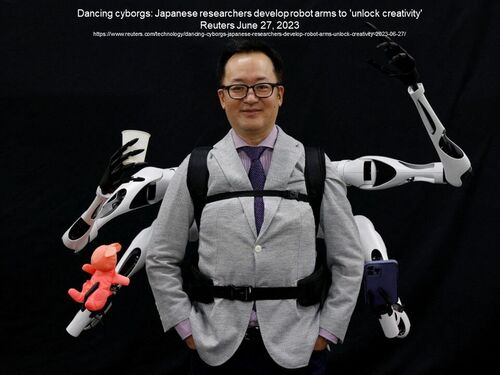 |
Speaker Abstract: The social revolutions have accompanied innovation of the view of the body. If we regard the information revolution as establishment of a virtual society against the real society, it is necessary to design a new view of body ""JIZAI body (Virtual Cyborg)"", which can adapt freely to the change of social structure, and establish a new view of the body. In this talk, we discuss how we understand of basic knowledge about the body editing for construction of JIZAI body (Virtual Cyborg) based on VR, AR and Robotics. Superhuman Sports: Applying Human Augmentation to Physical Exercise. |
【Special Lecture 2】
Dr. Akihiko Nakano
Live Cell Super-Resolution Imaging Research Team RIKEN Center for Advanced Photonics
http://sclim.riken.jp/en/about/
PARADIGM SHIFTS IN MEMBRANE TRAFFIC RESEACH
- SEEING IS BELIEVING?
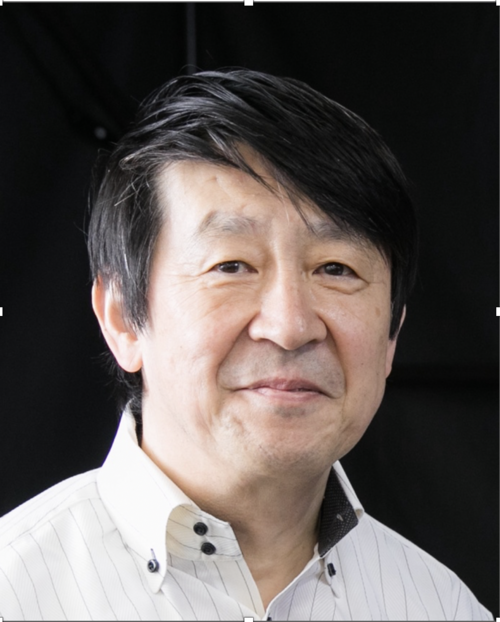 |
Speaker Abstract: Membrane traffic is the word to represent transport processes among membrane organelles. It used to be called vesicular transport, but now other mechanisms such as tubular connections and direct contacts are also known to operate. The widely accepted model in cell biology textbooks, which indicates that vesicles are budded from the donor organelle, freely drift around in the cytosol, and find the target organelle and fuse, needs to be questioned now. Live imaging is a revolutionary invention in modern cell biology. A long-cherished dream to combine the advantages of light and electron microscopy, namely, to observe dynamic details in a living cell, is now coming true. It is due to development of a whole variety of photon-emitting probes and so-called super-resolution microscopy. It should be noted here that high resolution must be achieved not only in space but also in time to visualize the tiny structures that are moving around very rapidly. With this note in mind, we have developed a microscopic technology named SCLIM (super-resolution confocal live imaging microscopy) with extremely high spatiotemporal resolution. In the newest model, we have enabled multicolor 4D imaging at resolutions of 70 nm in 3D space and 20 volumes/s in time. In my lecture, I will guide the audience to a whole new world of membrane trafficking. New findings lead us propose a new fundamental model to explain seemingly different traffic systems of animal, plant, and yeast cells, in a comprehensive way. |
【Invited Lecture 1】
Dr. Hiroaki Wake
Department of Anatomy and Molecular Cell Biology, Nagoya University Graduate School of Medicine
https://www.med.nagoya-u.ac.jp/cel-bio/en/index.html
Multi-cellular dynamics and their manipulation
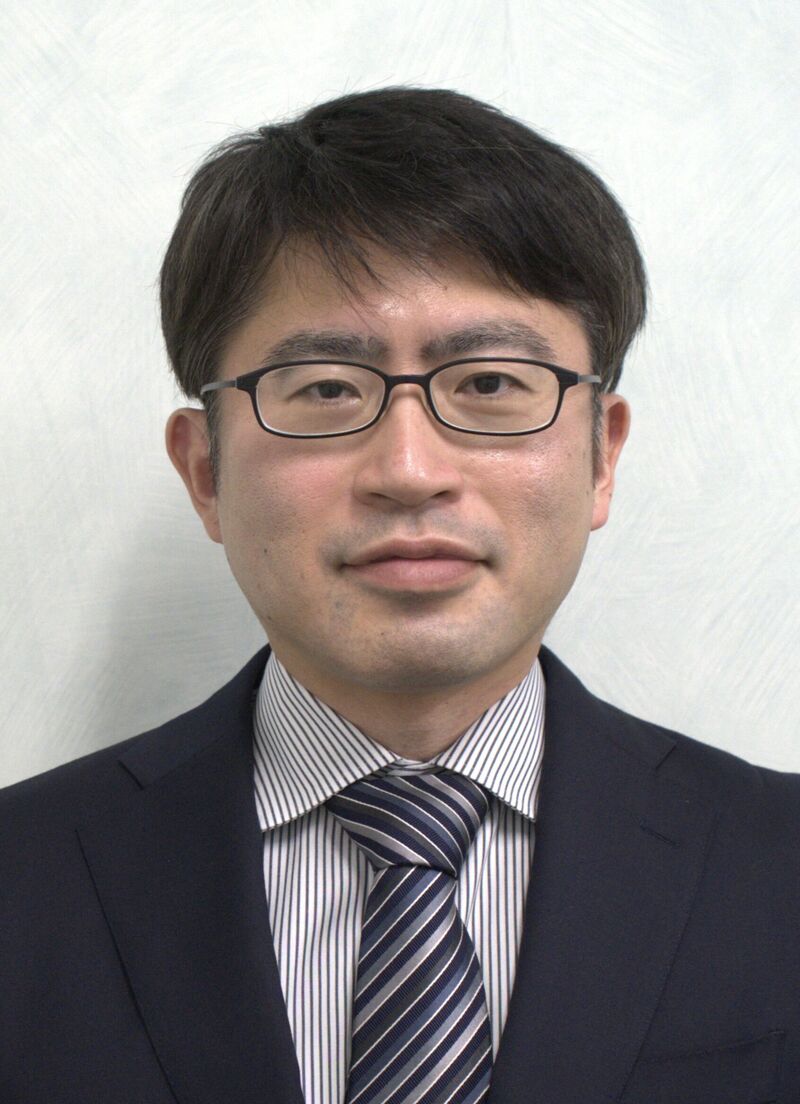 |
Speaker Abstract: The interaction of neuron and glia is essential for functional neuronal circuits. We have been especially focused on microglia, a sole immune cell in CNS. In addition to the pathological function of microglia, recent developments in molecular probes and optical imaging in vivo have revealed that microglia are highly motile cell in the healthy brain, extending and retracting their process that extend from a largely stationary cell soma. We reveal their physiological and pathological function on synapse and vessels. In this session, we will show microglial role for cross modal plasticity and show how they can contribute on sensory discrimination by their effect on neural circuit function. In addition, we will introduce our recent developed holographic microscope that can precisely measure and manipulate neuron and glial cell activities in a spatiotemporal manner in living mice to ultimately affect on behavior output. Furthermore, we will show our successful evaluation method to analyze the functional neuronal connectivity to integrate the transcriptome information. |
【Invited Lecture 2】
Dr. Yusuke Matsui
System Biology Division, Institute for Glyco-core Research, Nagoya University
https://igcore.thers.ac.jp/en/about/organization/
BigData-driven health science in the DX era
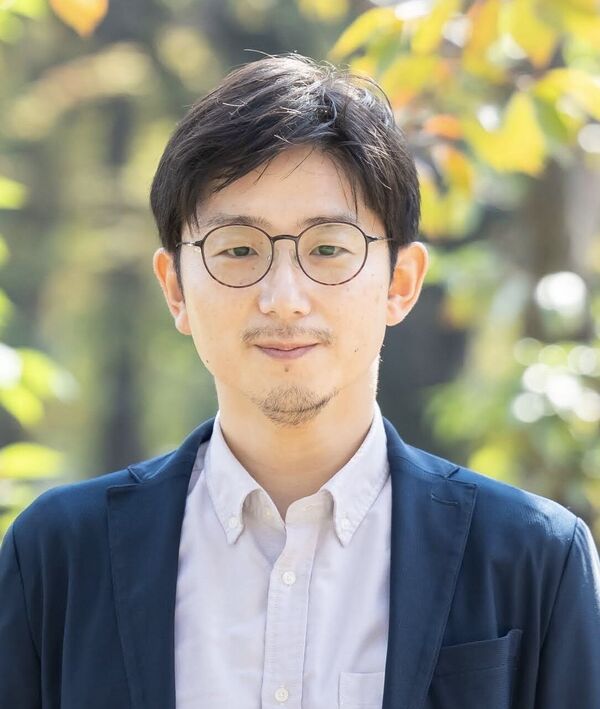 |
Speaker Abstract: Advances in big data technology have led to an increase in data science-driven research in the health sciences. There are increasing opportunities for open access to a wide variety of big data, including omics data to understand molecular-level phenomena, epidemiological data to measure the effects of interventions, and data from wearable devices. Traditionally, such data could only be handled by experts, but the advancement of open science has democratized the technology and made it easier to handle. The use of these big data can accelerate research in the health sciences. In this presentation, examples of research using molecular and biosensing information will be presented and research designs and approaches that are driven by big data will be discussed. Computational biology approaches aimed at understanding the mechanisms of diseases such as aging, cancer, and dementia, as well as the effects of health care interventions such as exercise will also be highlighted. |
【Invited Lecture 3】
Dr. Kenichi G. N. Suzuki
Cell Biophysics laboratory, Institute for Glyco-core Research (iGCORE), Gifu University, Professor
Division of Advanced Bioimaging, National Cancer Center Research Institute, Chief (cross-appointment)
https://www1.gifu-u.ac.jp/~single/
Unraveling of mechanisms of signaling platform formation in cell membranes by single-molecule imaging and super-resolution microscopy
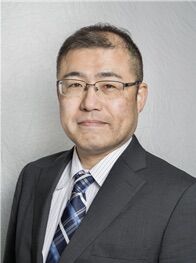 |
Speaker Abstract: Intracellular molecules do not work synchronously but essentially work in a stochastic process (randomly) because intracellular molecules undergo Brownian motion. Individual molecules engage in interactions lasting less than seconds, with the proportion of interacting molecules rarely exceeding 10%. For example, single-molecule observation revealed that an oncogene product, K-Ras is activated by binding with GTP for only less than 0.5 seconds, and the activated fraction is less than 10%. To elucidate the mechanisms of such transient and rare molecular events in cells, we developed a high-speed single-molecule imaging system (sometimes at the world's fastest speed of 20,000 frames per second!) and collected statistics on the time and frequency of events (Suzuki et al., Nat. Chem. Biol., 2012; Komura et al., Nat. Chem. Biol., 2016; Fujiwara et al., J. Cell Biol., 2023). Furthermore, by using the technique of high-speed single-molecule observation, we developed high-speed dual-color PALM/dSTORM super-resolution microscopy and analysis methods. In addition, we can acquire pseudo-real-time movies in living cells. By using these state-of-the-art imaging techniques, we recently discovered the clustering of signaling molecules such as K-Ras and STING (Kenmoku et al., Nat. Commun. 2024) in small (~100 nm in diameter) lipid domains of living cell plasma membranes and trans-Golgi networks, respectively. Our results showed that both lipid-lipid and protein-lipid interactions are important for the clustering. Furthermore, we also unraveled the mechanisms of how these signaling molecules interact with the downstream signaling molecules in lipid domains. In this talk, I will introduce these imaging techniques and recent advances in our studies. |
■Registration for Participation and Poster Presentation
Poster Presenters (Registration and Poster Presentation Deadline: Monday, December 25th, 2024)
→The deadline has been extended to January 8th, 2024.
https://forms.office.com/r/C5wmCFUXsA
Non-poster Presenters (Registration Deadline: Monday, January 8th, 2024)
*Poster presenters who have already registered above do not need to register again.
https://forms.office.com/r/wSpnc35ajn
■Program (tentative)
Thursday, February 15th, 2024
16:00 - Preparation for the workshop *only for student workshop participants
Friday, February 16th, 2024
9:00 - 10:00 Registration and Poster Display
10:00 - 10:10 Opening Remarks
10:10 - 10:40 Invited Lecture 1: Dr. Hiroaki Wake (Presentation: 20 minutes and Q&A: 10 minutes)
10:40 - 11:50 Poster Session 1 (odd numbers) *Student posters will be judged for the "Poster Award".
11:50 - 12:50 Lunch
12:50 - 14:00 Poster Session 2 (even numbers) *Student posters will be judged for the "Poster Award".
14:00 - 15:00 Special Lecture 1: Dr. Masahiko Inami (Presentation: 45 minutes and Q&A 15 minutes)
15:00 - 15:10 Break
15:10 - 16:10 Special Lecture 2: Dr. Akihiko Nakano (Presentation: 45 minutes and Q&A: 15 minutes)
16:10 - 16:40 Invited Lecture 2: Dr. Yusuke Matsui (Presentation: 20 minutes, Q&A: 10 minutes)
16:40 - 17:00 Photo
17:00 - 17:30 Check-in
17:30 - 18:30 Dinner
18:30 - 20:30 Poster Session 3 and Preparation for Student Workshop
20:30 - 21:00 Poster collection
21:00- Exchange meeting
Saturday, February 17th, 2024
8:00 - 9:00 Check-out
9:00 - 9:30 Invited Lecture 3 Dr. Kenichi Suzuki (Presentation: 20 minutes and Q&A: 10 minutes)
9:30 -10:30 Student Workshop Presentations Judged *Student posters will be judged for the "Poster Award".
10:30 - 11:00 CIBoG Debriefing Session
11:00 - 11:20 Awarding Ceremony for Tsurumai Award
11:20 - 11:40 Awarding Ceremony for Video Award, Poster Award and Student Workshop Award
11:40 - 11:50 Closing Remarks
■About Poster Presentations
1. Language: English.
2. Poster Size: 90cm width x 180cm length
*Please keep the W x H ratio and make your poster with high resolution (200-300 dpi).
3. Eligible Person: Anyone may present a poster. However, only students are eligible for the "Poster Award".
4. Introduction Video: All poster presenters are required to submit an introductory video instead of a Flash Talk. Please see below for details.
5. Poster Display Time: Friday, February 16th, 10:00-20:30 (9:00-10:00 for affixing posters / 20:30-21:00 for collecting posters)
6. Poster Judging Time: Friday, February 16th, 2024, 10:40-11:50 (odd numbers), Friday, February 16th, 2024 / 12:50-14:00 (even numbers)
*Poster awards will be judged during this time. Presenters are requested to stand by their posters.
7. Abstract Submission: Please submit your poster title and abstract (200 words) in English at the registration website.
8. Poster Number: Your poster number and abstract will be published in the abstract book. Please confirm your poster number.
■About Introduction Video
Participants are requested to upload the introduction video to the Internet instead of the conventional Flash Talk.
1. Time: 1 minute or less
2. Language: English or Japanese
3. Content: Brief self-introduction and introduction of your poster presentation
4. Size: 16:9 (1280x720 recommended for PowerPoint)
5. Video creation instructions: Please access the following URL. (Only English documents are available.)
https://support.microsoft.com/ja-jp/office/プレゼンテーションをビデオに変換する-c140551f-cb37-4818-b5d4-3e30815c3e83
6. File name convention: Please enter the title of your presentation in English. No spaces or underscores (_) are allowed.
7. Submission deadline: Monday, January 15th, 2024
8. Method of publication: The video will be available on Vimeo, and a password will be required.
The password will be notified to all participants at a later date.
9. Public release period: Monday, February 5, 2024, to Saturday, February 17, 2024.
10. Video award judging period: Monday, February 5, 2024, to Thursday, February 15, 2024, 12:00 noon.
*Note: The deadline is the day before the first day of the retreat.
11. All retreat participants are eligible to vote. Among other criteria, video submissions must be judged.
■About Student Workshop
The Student Workshop is designed for graduate students to interact and learn. It is also an opportunity to gain new ideas and perspectives through networking with experts in different fields and other students and prepare for the Student Workshop.
Preparation: Students will take the lead in forming groups based on their areas of expertise and topics of interest.
Preparation for the workshop: Thursday, February 15th, 2024, at 4:00 p.m.
Voluntary participants will gather at the Aichi Health Plaza for preparations. Accommodations will be provided for participants.
Day 1: Friday, February 16th, 2024
Groups will deepen discussion on the theme and formulate their opinions. Participants are allowed to join or leave during the session. Faculty members are also welcome to attend.
Day 2: Saturday, February 17th, 2024
Workshop Presentation and Evaluation: On the second day of the retreat (February 17, 2024), each workshop group will present their discussion outcomes. These presentations will be assessed by all attendees participating in the retreat.
Contact:
Organizing Committee for CIBoG Retreat (in the CIBoG WISE Program Office)
052-744-1946
cibog@med.nagoya-u.ac.jp

